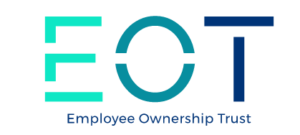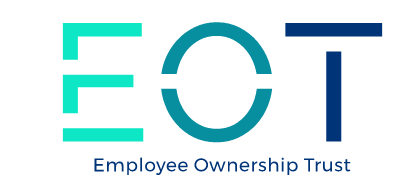1. EOT Influence in Travel and Tourism
Tourism takes on a new form when you factor in the role of Employee Ownership Trusts (EOTs). In the ever-changing sector, the widespread adoption of the EOT in travel concept is helping taking the industry to new heights. Whether it’s booking accommodations, securing flights, or crafting personalized travel experiences, EOTs are playing a critical role in reshaping how we plan and experience travel on a major scale.
EOTs represent more than just a business model— they underscore a revolution in company ownership heeding considerable benefits for both employees and customers. In travel, an industry recognized by its personalized touch, EOTs are enabling a shift towards a more inclusive and targeted approach. The renowned British tour operator, Trailfinders, operates under an EOT structure and its success sends a compelling message to those in the sector.
2. Innovations and Changes in the Sector
Embracing EOTs has led to an industry transformation that has proven to be beneficial, where employees receive a stake in the company’s successes. EOT engagement helps keep professionals motivated, encouraging them to create more unique and exciting travel products. In turn, customers receive a more personalized, high-quality experience.
Many industry players have embraced the EOT model given its potential for improving employees’ morale and aligned interests. This collective ownership has spiked creativity and instilled a new sense of coherence and shared prosperity in the industry. Innovation thus flows naturally due to the collective effect of the EOT structure, as its impact cuts through the heart of democracy, enterprise, and creativity in business.
3. Real-World Stories from Travel EOTs
Today, several EOTs in the travel industry showcase the significant benefits that such a business model provides. For instance, Sawday’s, the renowned special places to stay specialists, transitioned into an EOT in 2017, adding to the growing list of travel companies setting a new trend for the industry.
Sawday’s transformation into an EOT provided employees with a refreshing sense of purpose, enabling them to rally around the idea of shared ownership and responsibility. The team was thus inspired to deliver services at the highest quality, creating unique and enjoyable experiences for their customers. The company’s progressive move ensured its sustainability, even amid the challenging climate enhanced by the COVID-19 pandemic.
4. Challenges and Solutions in a Dynamic Industry
Adopting an EOT structure is not without its challenges. Ensuring proper communication, transparency, and trust among all stakeholders is a constant struggle. However, technology has played a substantial role in meeting these challenges, by forging better communication channels and fostering streamlined operations which directly impact the overall customer experience.
The use of advanced booking systems, virtual reality in showcasing destinations, and artificial intelligence in customer service are just some of the travel innovations EOTs are monetising to overcome the industry’s challenges. Their prescient move towards agile solutions underscores their drive to continually reinvent themselves and provide unprecedented levels of service in the travel and tourism industry.
5. Predicting Future Travel Trends with EOT Structures
EOT structures are not just revamping the industry’s present; they’re preparing it for the future. With increasing focus on local tourism and sustainability following the world re-opening post-pandemic, EOTs have the potential to play pivotal roles in shaping the industry’s future.
Tourism trends are quickly shifting. More travellers are now seeking authentic, localized experiences. Thanks to EOTs, travel businesses can truly tap into these demands by offering innovative, customized packages that no longer follow the traditional one-size-fits-all approach. As EOTs continue their upward momentum, we can expect more radical shifts and lasting impacts on travel and tourism.
6. Conclusion
Beyond the shadow of a doubt, Employee Ownership Trusts have greatly impacted the travel and tourism industry, triggering a transformative EOT influence that sets the stage for more to come. In fostering an environment of shared responsibility and creativity, EOTs have pioneered unprecedented travel innovations and trends poised positively to affect the industry’s future. In navigating the tumultuous waters of the travel business, EOTs hold the power to trail blaze a sustainable future in this dynamic industry.
Frequently Asked Questions (FAQ)
1. What is the influence of EOT in the Travel and Tourism Industry?
2. How have EOTs fostered innovation and change in the travel sector?
3. Can you give a real-world example of an EOT in the travel industry?
4. What are the challenges and solutions in adopting an EOT structure in the travel industry?
5. How are EOT structures influencing future travel trends?
6. How have Employee Ownership Trusts impacted the travel and tourism industry as a whole?
Employee Ownership Trusts (EOTs)
Chartered Accountancy
Business Transitions to EOTs
Employee Engagement
Nigel Watson, a prominent consultant and author in the realm of Employee Ownership Trusts (EOTs) within the UK, boasts over twenty years of experience. Having embarked on his career as a chartered accountant, Nigel soon shifted his focus to the intricate world of employee ownership models. He has since played an instrumental role in guiding over 100 organizations, from private enterprises to public institutions, through the seamless transition to EOTs.
Read my full Bio
- How do EOTs influence supply chain and logistics? - October 19, 2023
- What role do shareholders play in EOTs? - October 19, 2023
- How do EOTs handle crisis communication and PR? - October 19, 2023


